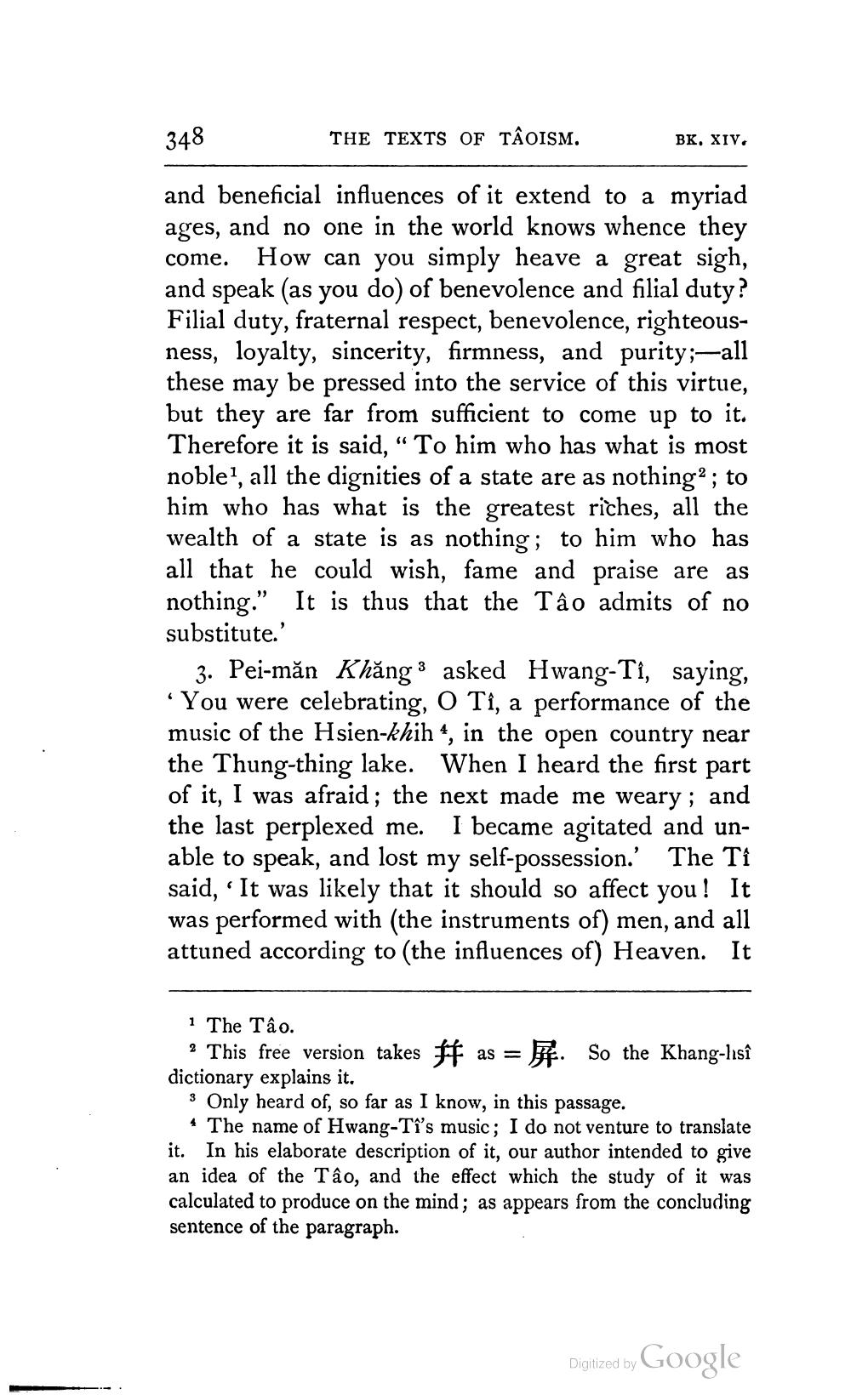________________
348
THE TEXTS OF TÂOISM.
BK, XIV.
and beneficial influences of it extend to a myriad ages, and no one in the world knows whence they come. How can you simply heave a great sigh, and speak (as you do) of benevolence and filial duty ? Filial duty, fraternal respect, benevolence, righteousness, loyalty, sincerity, firmness, and purity;—all these may be pressed into the service of this virtue, but they are far from sufficient to come up to it. Therefore it is said, “ To him who has what is most noble?, all the dignities of a state are as nothing?; to him who has what is the greatest riches, all the wealth of a state is as nothing; to him who has all that he could wish, fame and praise are as nothing." It is thus that the Tâo admits of no substitute.'
3. Pei-măn Khăng ? asked Hwang-Tí, saying, You were celebrating, O Tî, a performance of the music of the Hsien-khih 4, in the open country near the Thung-thing lake. When I heard the first part of it, I was afraid ; the next made me weary; and the last perplexed me. I became agitated and unable to speak, and lost my self-possession. The Ti said, 'It was likely that it should so affect you! It was performed with (the instruments of) men, and all attuned according to the influences of) Heaven. It
1 The Tão.
? This free version takes # as = F. So the Khang-lisî dictionary explains it.
3 Only heard of, so far as I know, in this passage.
4 The name of Hwang-Ti's music; I do not venture to translate it. In his elaborate description of it, our author intended to give an idea of the Tâo, and the effect which the study of it was calculated to produce on the mind; as appears from the concluding sentence of the paragraph.
Digitized by Google




